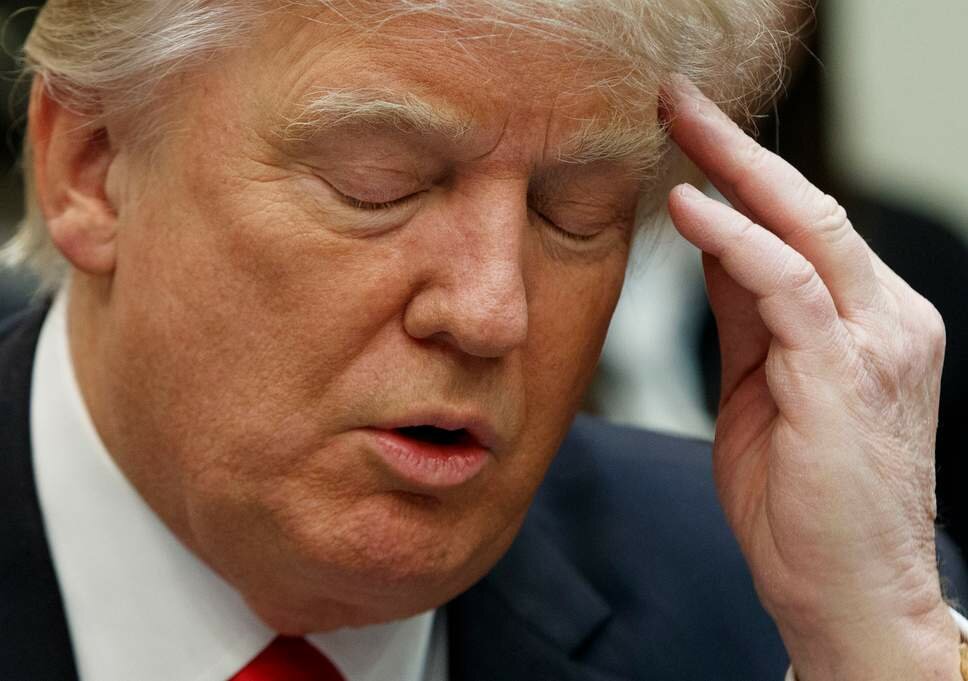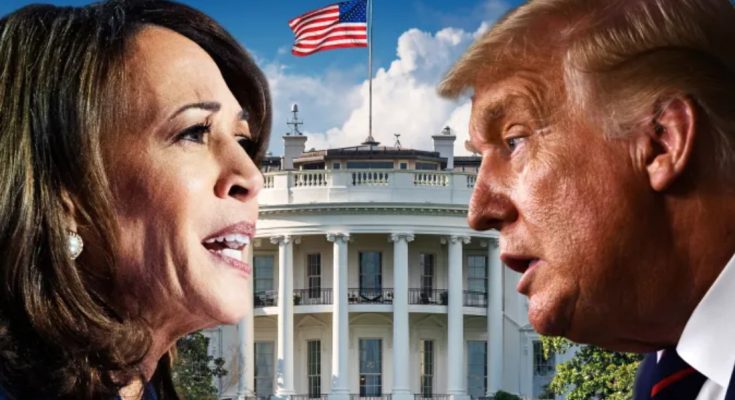In a dramatic turn of events, former President Donald Trump found himself spiraling into a frenzy over the recent endorsement of Vice President Kamala Harris by none other than Dick Cheney, a prominent figure in Republican politics. This unexpected alliance has sent shockwaves through the GOP, leading Trump to lash out and label Cheney as a “rhino,” or Republican in Name Only. However, many are questioning the validity of that label, especially considering Cheney’s long-standing reputation within the party.

Trump’s tirade began on social media, where he posted a series of rants directed at Cheney and his daughter, Liz Cheney. In one of his posts, he referred to Dick Cheney as an “irrelevant rhino,” claiming that both Cheneys had lost their credibility after Liz’s significant defeat in her congressional race. Trump’s language was as combative as ever, asserting that Cheney is “the king of endless nonsensical wars” and positioning himself as the “peace president.” This rhetoric, however, comes across as hollow when juxtaposed with his history of foreign policy decisions that many deem questionable.
During a recent event, Liz Cheney announced her father’s endorsement of Kamala Harris, stating that he believes Trump poses a grave threat to democracy. “There has never been an individual in our country who is as grave a threat to our democracy as Donald Trump is,” she said, emphasizing the urgency of the moment. This statement not only underscores the deep divisions within the Republican Party but also highlights the growing bipartisan concern regarding Trump’s influence.
In his typical fashion, Trump responded with a barrage of accusations, claiming that the January 6th Capitol riots were a result of a conspiracy orchestrated by the government to cover up a “fraudulent election.” His posts, filled with disinformation, reflect a continued effort to rewrite the narrative surrounding the events of that day. Trump’s assertion that Nancy Pelosi was responsible for the insurrection while simultaneously claiming it was staged by the FBI reveals a tangled web of contradictions that many find hard to follow.
Dick Cheney’s endorsement of Harris is particularly significant, given his stature within the GOP and his previous role as Vice President under George W. Bush. His statement is a direct challenge to Trump’s narrative and a call for Republicans to prioritize the country over party loyalty. Cheney’s view that Trump should never be trusted with power again resonates with a segment of voters who are increasingly disillusioned by the former president’s antics.
As Trump continues to grapple with the fallout from Cheney’s endorsement, polls indicate that Kamala Harris is gaining traction among voters. Recent data shows her leading Trump by 3.1 percentage points, a statistic that mirrors the lead Trump had during the 2020 election cycle. This shift in voter sentiment is further emphasized by the increase in Democratic voter registration, particularly among younger demographics, suggesting that Harris’s candidacy is resonating with a new generation of voters.

Moreover, as Trump held a press conference in Charlotte, he expressed dissatisfaction with his legal team and lamented that they failed to mention key evidence during his trials, including the infamous “Monica Lewinsky dress.” His complaints reveal a man under immense pressure, struggling to maintain his grip on a narrative that seems to be slipping away.
In a bizarre twist, Trump also took the opportunity to mock Nancy Pelosi’s husband, who survived an assassination attempt, indicating a troubling trend of insensitivity towards serious issues. His comments, coupled with his insistence on referring to the Democratic Party as the “Democrat Party,” further illustrate his disdain for political decorum and civility.
As the political landscape shifts, the implications of Cheney’s endorsement could prove to be far-reaching. It signals a potential fracture within the Republican Party, where loyalty to Trump is increasingly being questioned by traditional conservatives. The rise of figures like Cheney, who are willing to speak out against Trump, may pave the way for a new faction within the party that prioritizes democratic principles over personality cults.
In conclusion, Trump’s explosive reaction to Kamala Harris’s endorsement by Dick Cheney underscores the growing tensions within the Republican Party. As Trump continues to battle both external threats and internal dissent, the question remains: can he maintain his influence, or is this the beginning of a significant shift in American politics? The coming months will be crucial as the 2024 election approaches, and the stakes have never been higher for both parties.



